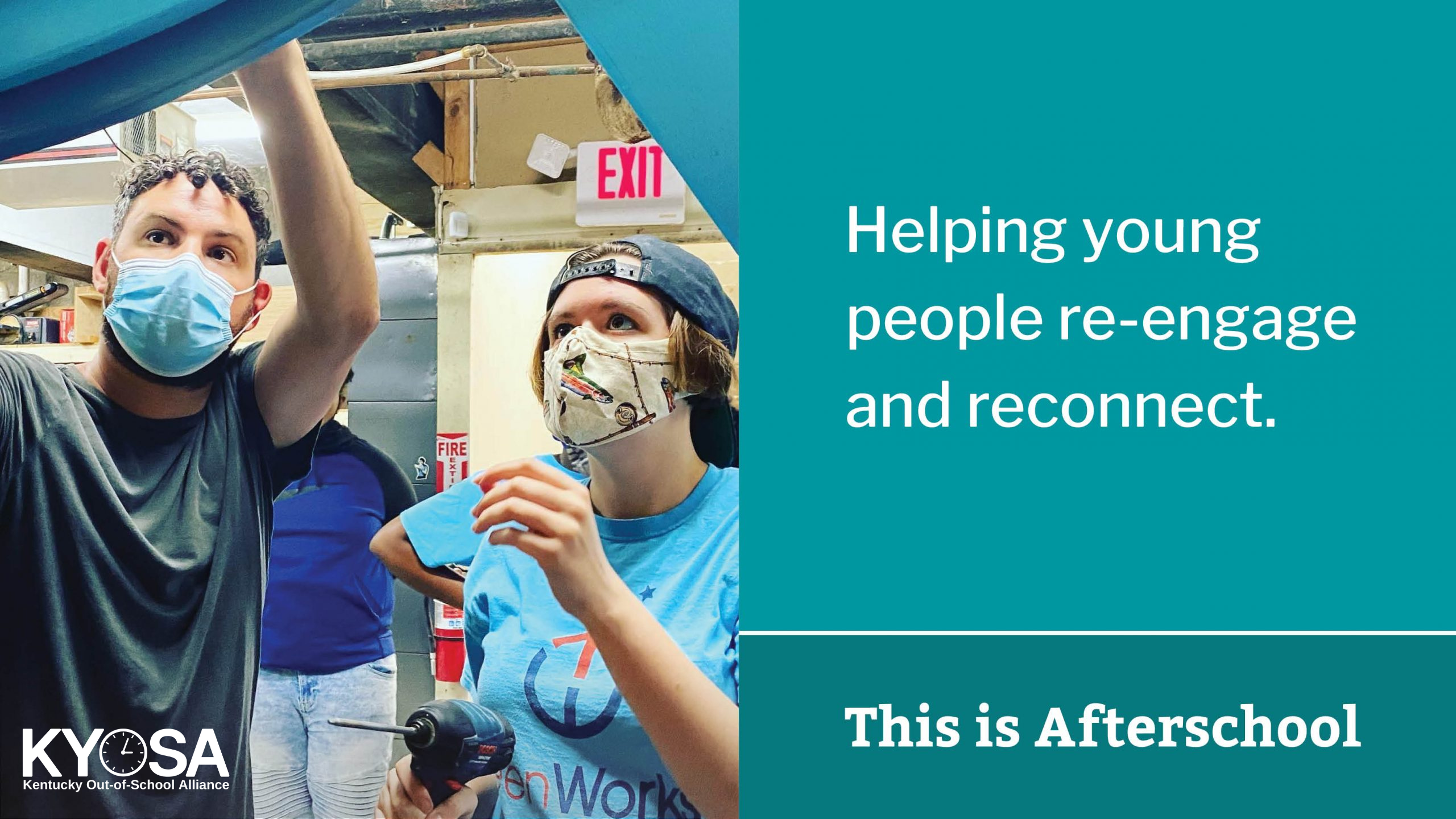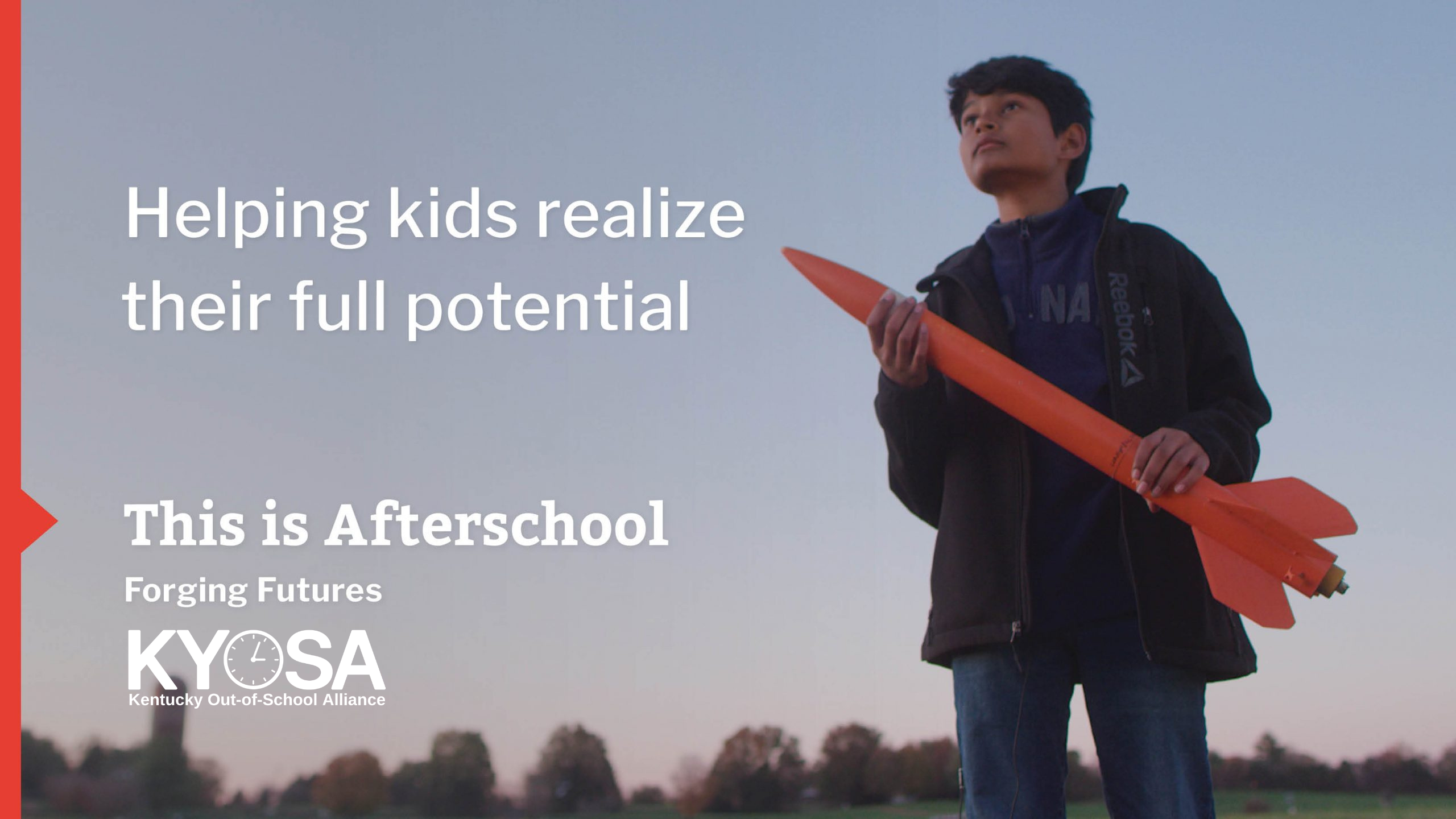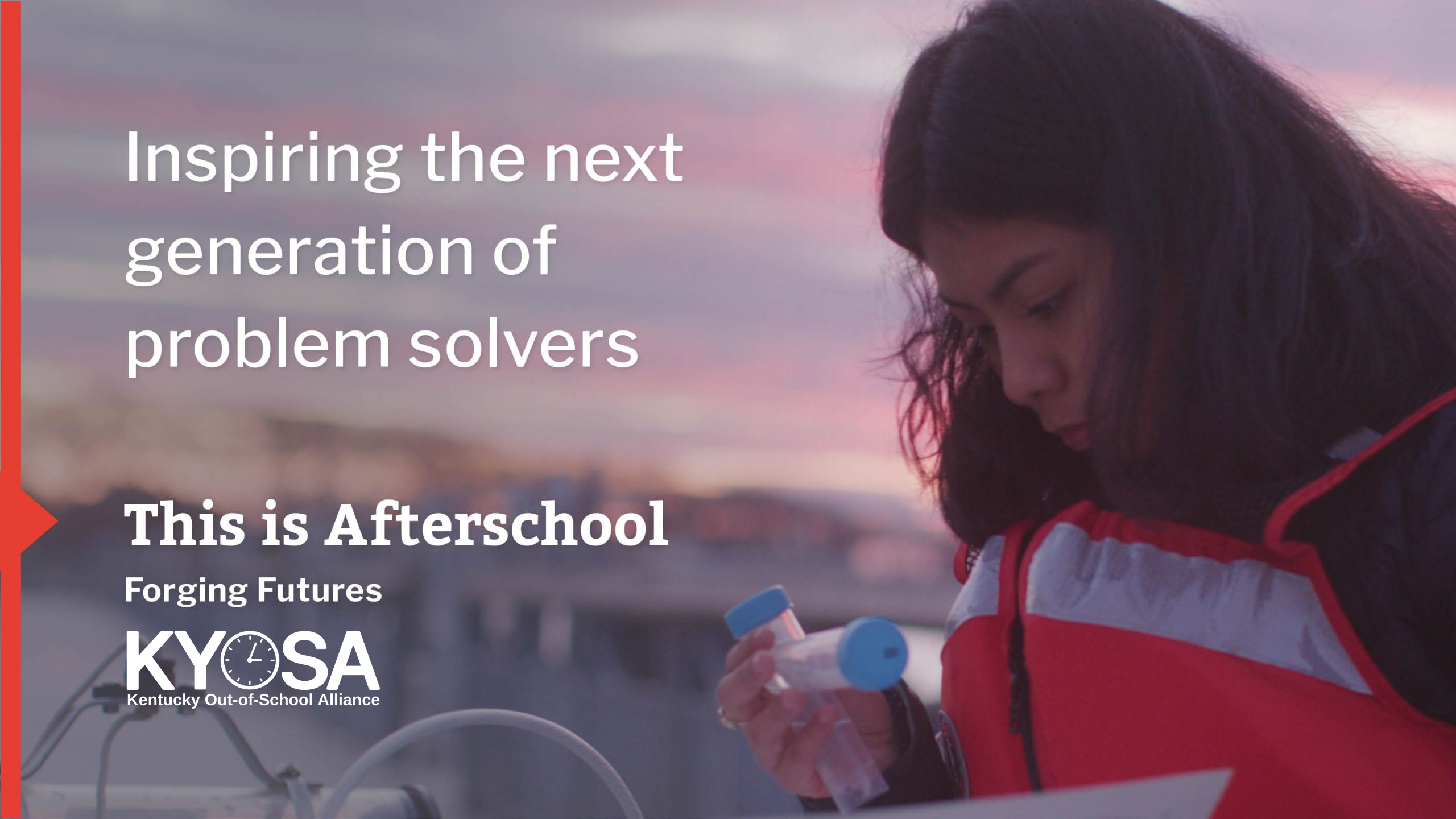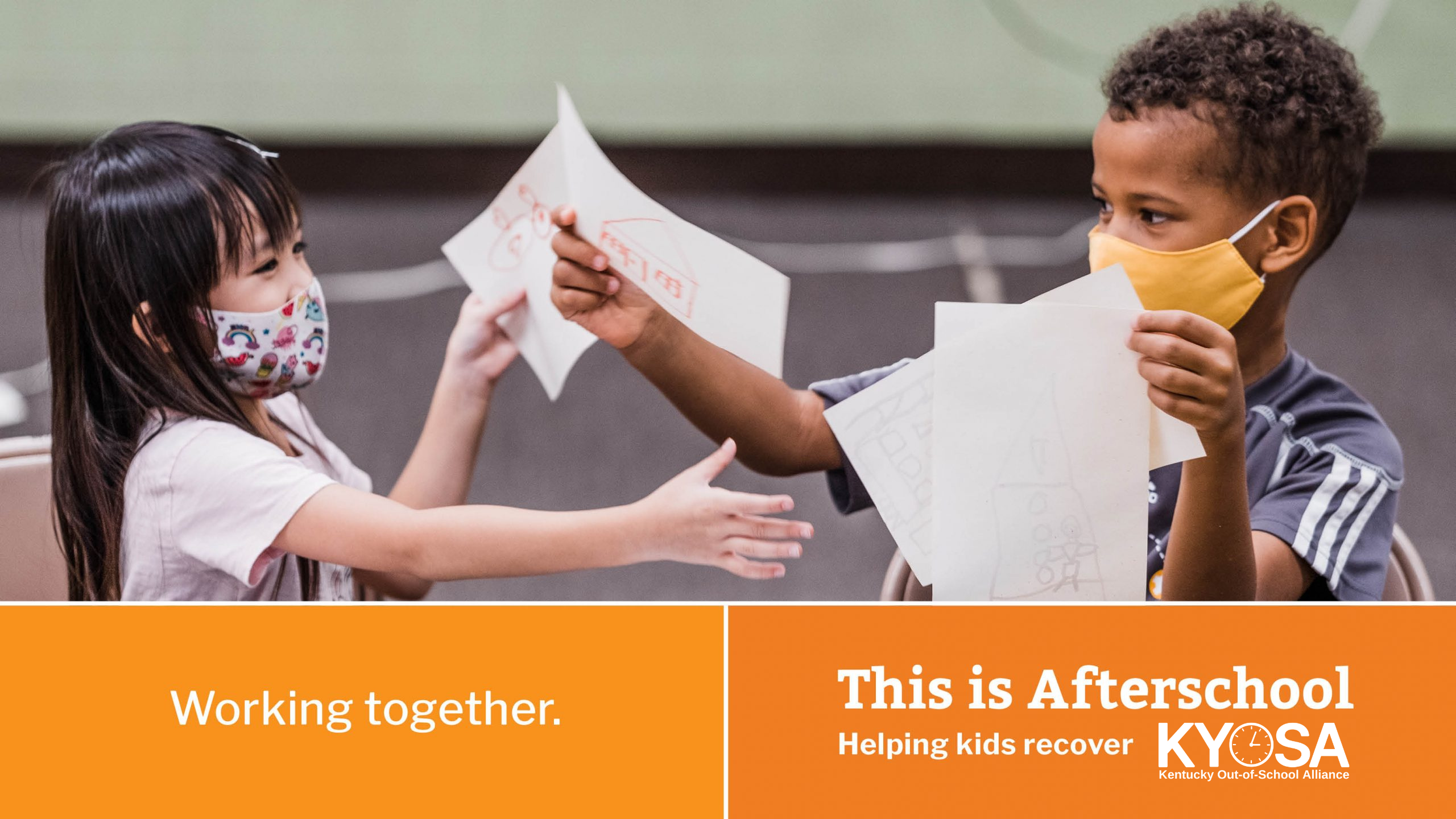The American Rescue Plan brings over $521 million in additional funding for afterschool and summer learning across Kentucky. Kentucky can expect a range of 3X to 7X the current level of total state funding for 21st CCLCs to come through for afterschool and summer. This funding presents a tremendous opportunity to support students’ recovery and expand access to afterschool and summer learning programs for underserved communities across the Commonwealth.
Funding Breakdown
Frequently Asked Questions
Click on the links below to find answers to frequently asked questions about:
American Rescue Plan
The American Rescue Plan is the emergency funding and relief bill passed by Congress and signed into law by President Biden on March 11, 2021, that provides direct relief for families and students to recover from the fallout of the COVID-19 pandemic.
The Elementary and Secondary School Emergency Relief Fund (ESSER Fund) is the primary program by which the Department of education will award grants to State educational agencies (SEAs) for the purpose of providing local educational agencies (LEAs), including charter schools that are LEAs, with emergency relief funds to address the impact that COVID-19 has had, and continues to have, on elementary and secondary schools across the Nation.
The ARP includes $122 billion billion for Elementary and Secondary School Emergency Relief Fund (ESSER) III grants to State Education Agencies (SEA) for PK-12 public schools, with 90% allocated to local educational agencies (LEAs) and includes new set asides at the state and local level for afterschool and summer learning. The law also adds implementation of full-service community schools as an allowable use of funds and adds summer enrichment in the examples of allowable activities to address learning loss.
Estimated potential funds available for Kentucky afterschool and summer learning in the Plan include:
- $146 million available at the state (SEA) level, including:
- $20.9 million set-aside for summer enrichment
- $20.9 million set-aside for afterschool programs
- $104.2 million for learning recovery, which can include afterschool/summer/ELT
- Providers can be direct grantees of SEA funds (more on that in the next section).
- $375.3 million provided to local school districts for learning recovery strategies, including afterschool and summer enrichment
- Over $763 million for child care, which can include school-age care, which will flow to state child care agencies
- Funds for the Corporation for National and Community Service (i.e. AmeriCorps) (dollar amount for Kentucky coming soon) for additional AmeriCorps positions to help address learning recovery and other purposes
- $3 billion for Kentucky's state and local governments that can be used in part for child care and other purposes
The Department of Education dispersed funds to State Education Agencies (SEAs) the week of March 22. SEAs have 60 days from when they receive the funds to disperse 90% of their state allocation to local educational agencies (LEAs). The funds will remain available through September 30, 2024.
Nonprofit organizations?
For profit organizations?
Religious organizations?
Community based organizations?
Unlicensed community organizations?
The American Rescue Act does not prohibit funds for comprehensive afterschool, summer enrichment, or learning recovery from being awarded to any of the above entities although the law also does not require they be eligible. State Education Agencies (Kentucky Department of Education) overseeing the state level set asides and local school districts overseeing local funds will determine how the funds are awarded and what organizations are eligible. Organizations can advocate to make the case that a wide variety of providers should be eligible to receive funds.
Yes, technically OST providers are eligible for direct grants from both their State Education Agency and Local Education Agencies. However, it is up to KDE and local school districts to decide if and how they will provide any direct grants to community-based programs/organizations, so advocacy is key.
The Kentucky Department of Education (KDE) is recommending that schools/districts partner with community-based programs/organizations to provide "enrichment" for the upcoming summer and beyond, so it is very likely that districts will want to subgrant with OST providers. But, there are no guarantees, and that is why the local advocacy is so critical.
The ESSER funds are intended to be incredibly flexible and can be used to alleviate the fallout from COVID-19. According to ED, “the ESSER Fund provides LEAs considerable flexibility in determining how best to use ESSER funds. For example, LEAs may use ESSER funds for personal protective equipment (PPE), cleaning and sanitizing materials, and similar supplies necessary to maintain school operations during and after the COVID-19 pandemic. Since learning can and should continue, the Department encourages LEAs to target ESSER funding on activities that will support remote learning for all students, especially disadvantaged or at-risk students, and their teachers.” Addressing learning loss via summer learning and comprehensive afterschool programs are included as allowable uses in the previous ESSER funds and in ESSER III, have dedicated funds.
For the two state level set asides designed to fund comprehensive afterschool and summer enrichment, the law states that the State should carry out, directly or through grants or contracts, the implementation of evidence-based programs, and ensure such programs respond to students’ academic, social, and emotional needs and address the disproportionate impact of the coronavirus on low-income student populations, students experiencing homelessness, and children and youth in foster care.
No, Congress will still pass its annual funding bills and it is very likely that many federal programs will receive their typical, if not higher, levels of funding.
No, ESSER funds are able to be combined with other funding sources, including federal, state, and local funds.
You can find comprehensive list resources we're compiling (updated daily) in the next section of this page to help you make sense of all of the information coming down the pipeline from various organizations and agencies across Kentucky and the U.S.
Evidence-Based Considerations for COVID-19 Reopening and Recovery Planning
The Importance of Adult Skills in Social and Emotional Learning (SEL) (March 2021)
Summer Learning with Academic and Non-Academic Activities (March 2021)
Afterschool Coordination Systems to Support Afterschool Programming (March 2021)
Summer Camps
Direction from the Department of Education as well as decisions from state level departments of education on questions such as these have not yet been published.
The Department of Education has indicated they plan to release both a handbook and Frequently Asked Questions document as direction to state and local education agencies on how to best utilize these funds. Both of those forms of guidance are expected from the ED in early to mid-April.
Child Care
Information is expected to be available from the Office of Child Care at the Department of Health and Human Services soon and will be posted here. Ultimately, state child care agencies will determine the process for awarding these funds.
The eligibility for child care providers differs between states and falls into a number of categories including licensed, licensed-exempt, as well as others. Contact the Kentucky Division of Regulated Child Care for information on what qualifies a provider to be eligible for CCDBG funds.
Mental Health and Social-emotional Learning (SEL)
Eligibility for federal mental health funding varies between programs like Project AWARE, Suicide Prevention, and more. You can find more on these funding opportunities including eligibility and deadlines here.
The national office of Communities In Schools has more information and resources on community schools as does the national Coalition for Community Schools.
Special thanks to the following program partners for curating this information:
Afterschool Alliance, American Camp Association, Boys & Girls Clubs of America, Communities in Schools, YMCA of the USA
Resources
Afterschool and summer learning program providers stand ready to work with school partners to help reverse learning loss and help Kentucky students recover (socially, emotionally, and academically) from the effects of COVID-19.
Below is a sortable and searchable list of resources (automatically updated daily) to help you dive deeper into the American Recovery Act as it relates to using ESSER funds to expand access to afterschool and summer learning across Kentucky.
Social Media Graphics
Post, pin, or tweet! Help make the case for afterschool and summer learning by downloading and sharing out these graphic cards on your program or organization's social media pages.
Summer Learning
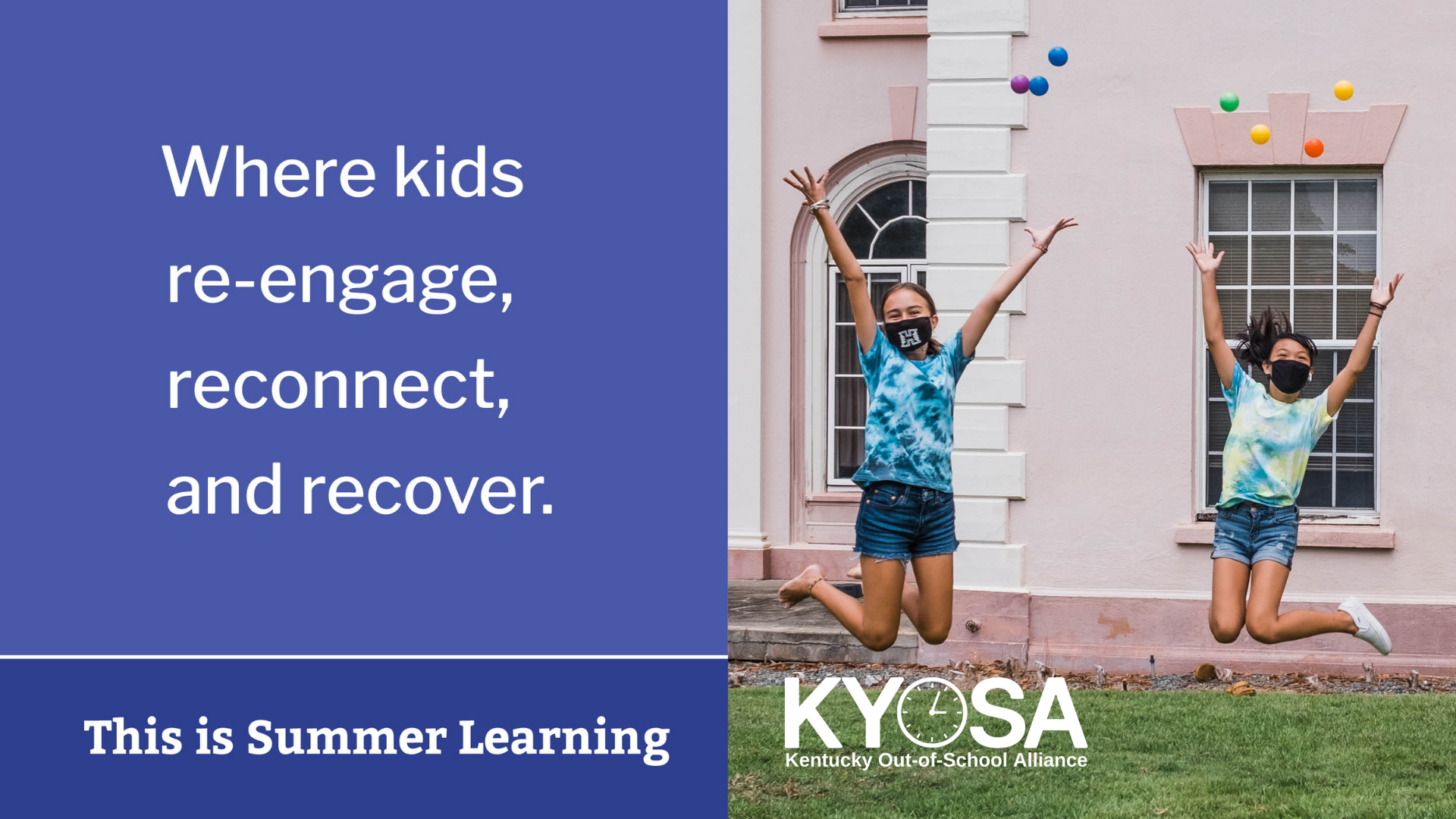
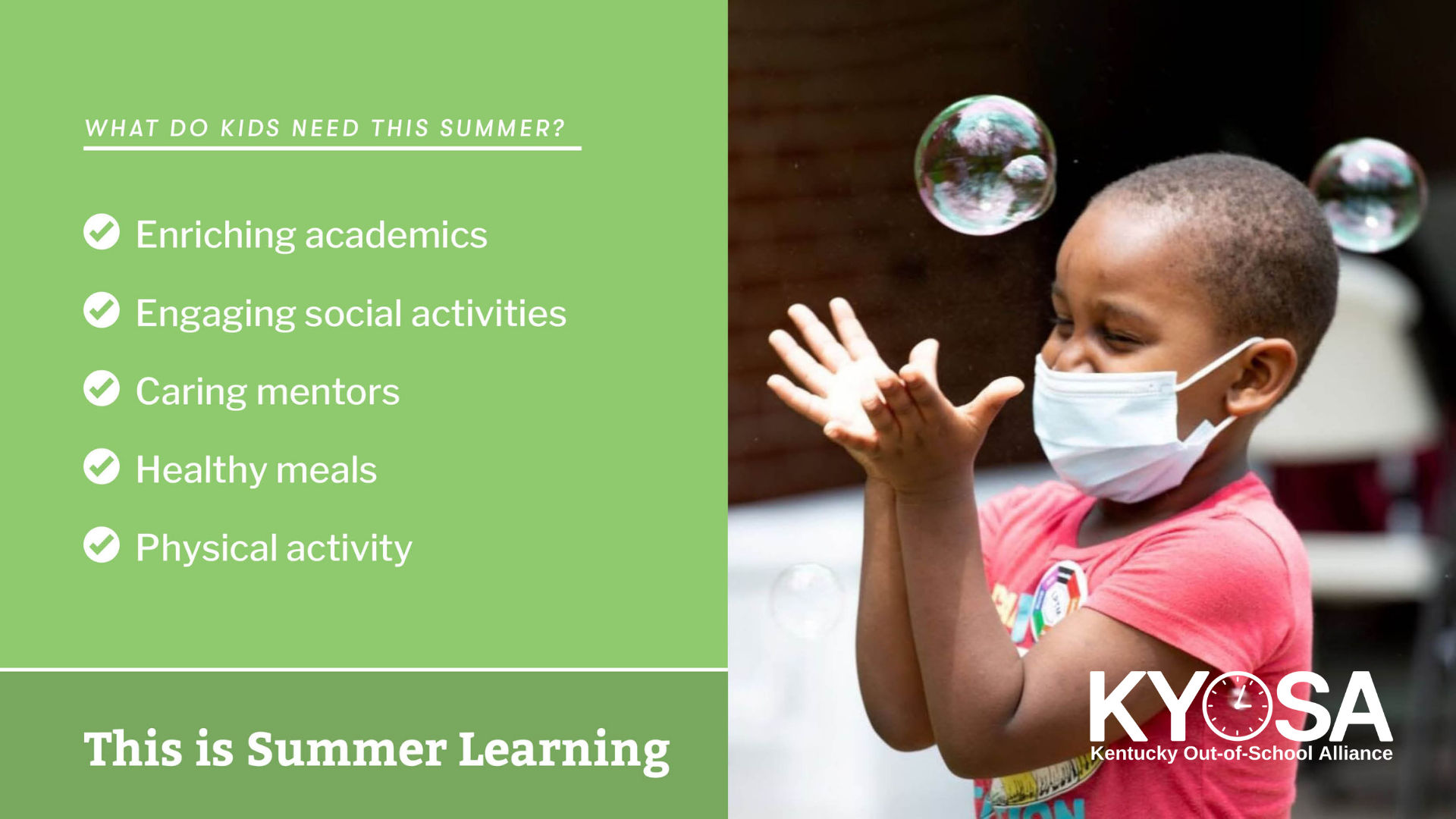
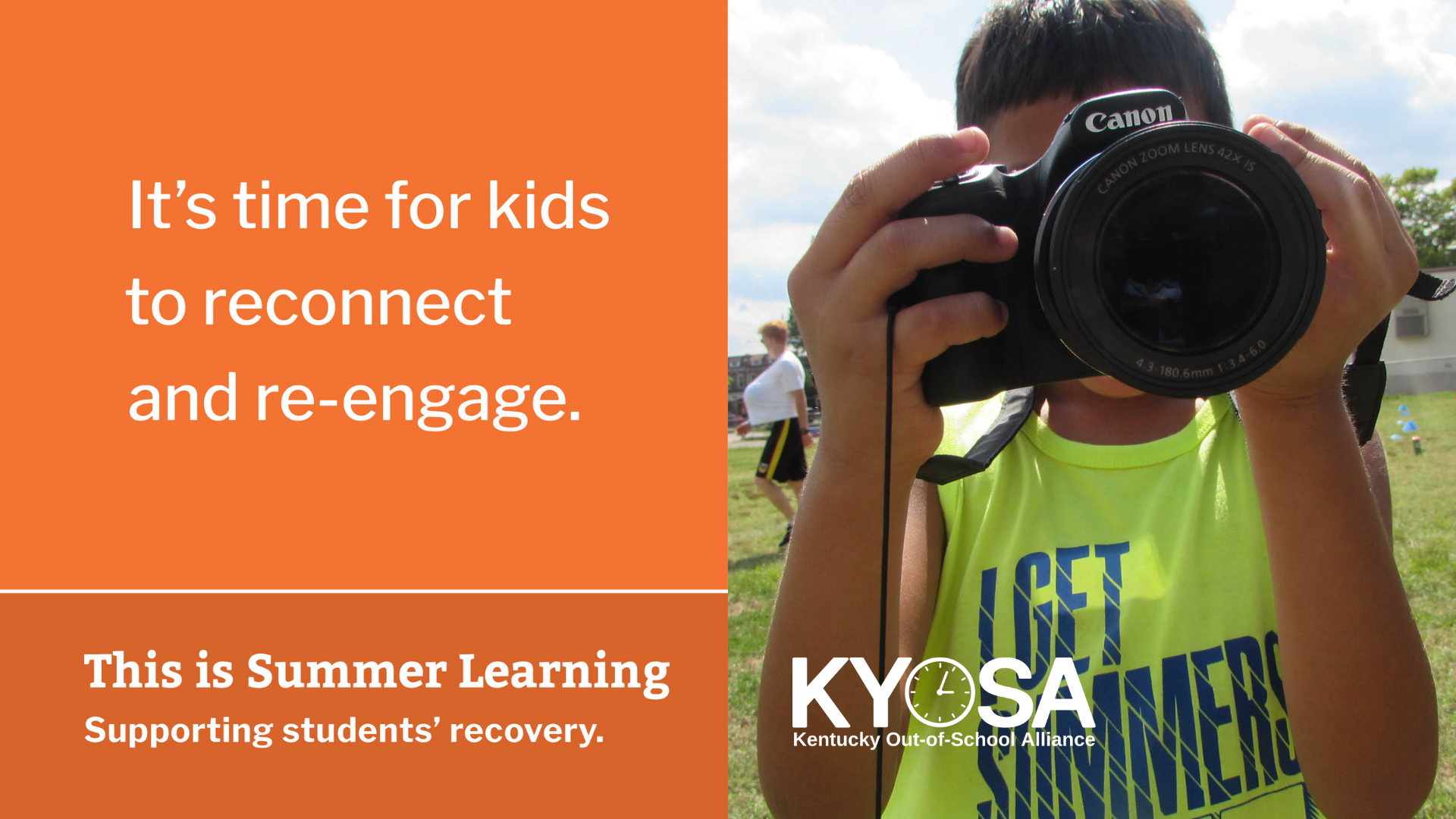
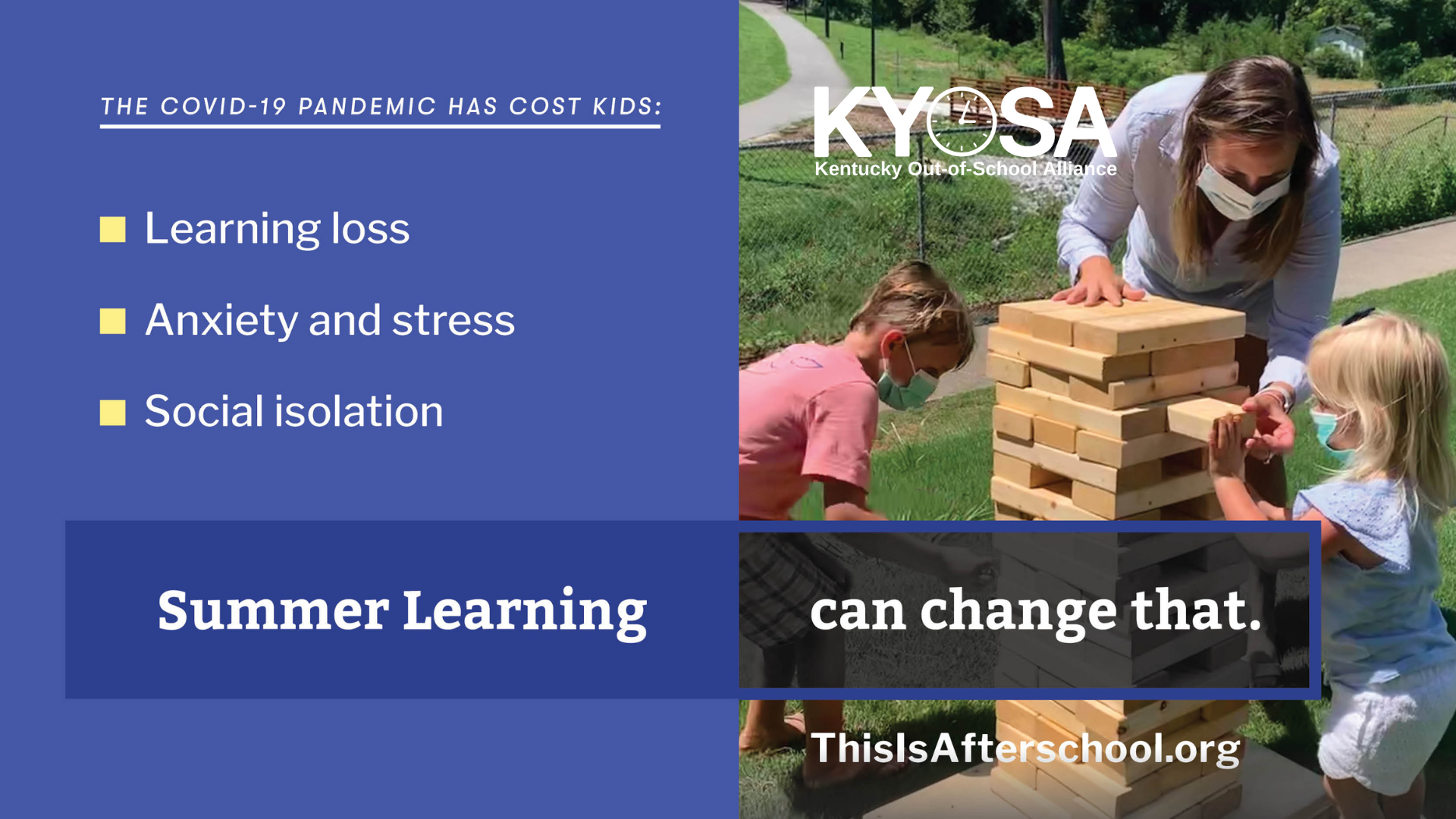
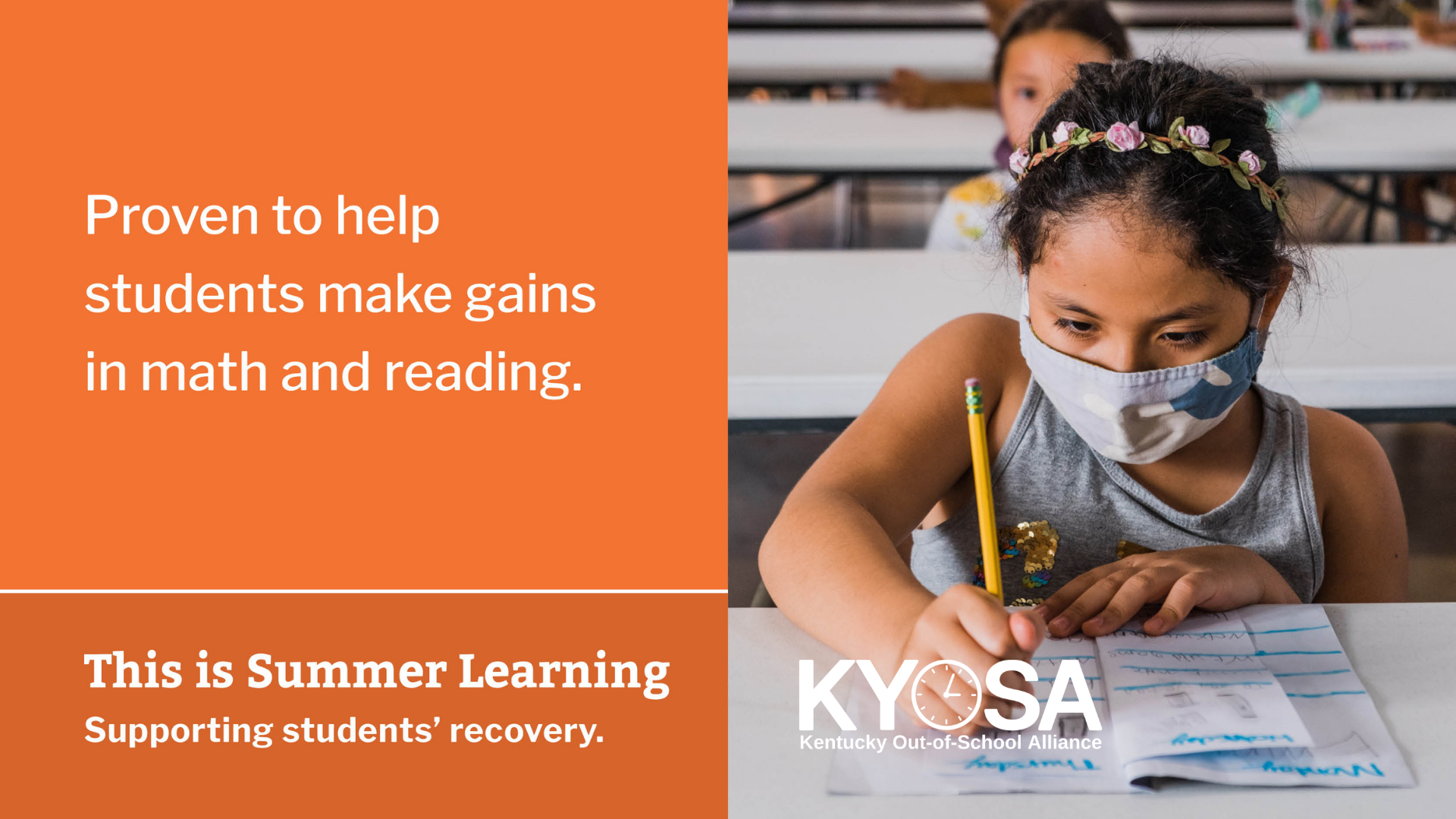
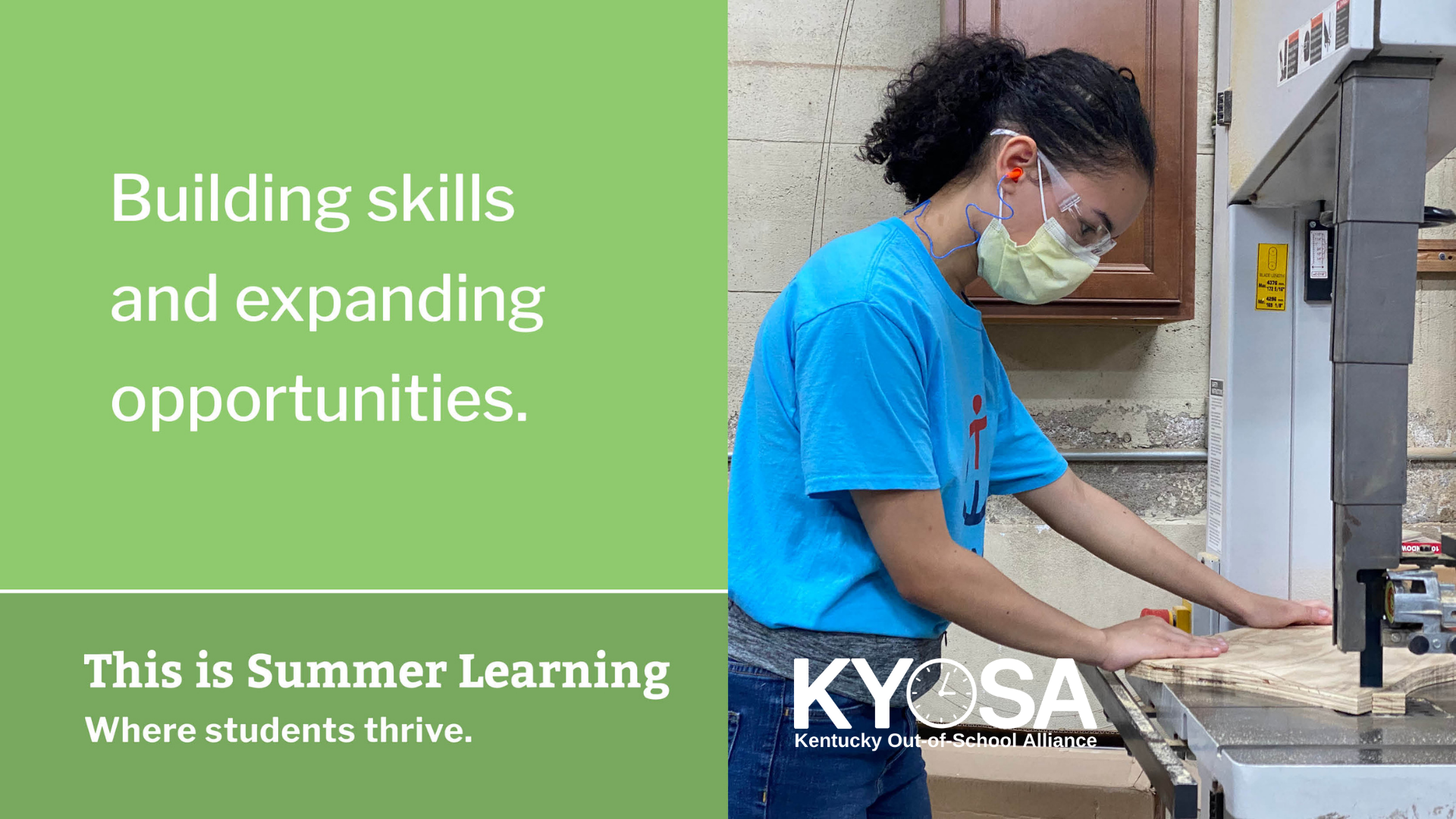
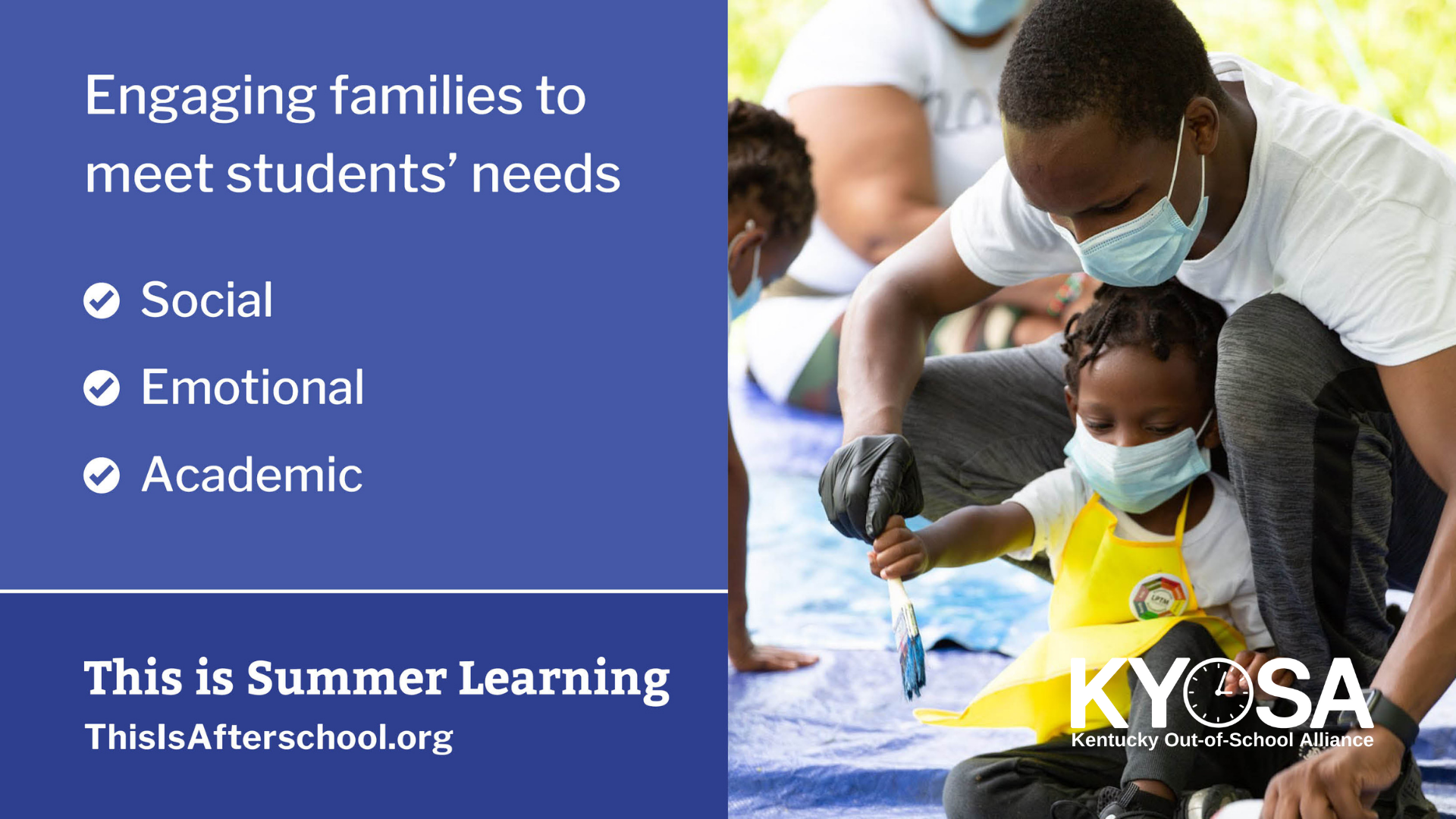
Afterschool
